Jack Wayne Bardwell may very well be one of the last of a disappearing breed — a natural born, lifelong working cowboy. Even at 73, he still hops on a horse or mule, takes his border collie and tends to moving the cattle for long hours each day.
Ranching is known to be a family tradition, passed from one generation to the next. That's how it worked for Jack Wayne, who was born and raised on a cattle ranch in Texas. He learned about cows and horses before learning his ABCs and 123s. His father served as the ranch manager on that sprawling ranch, and Jack Wayne embraced that life too.
Even though his future would take him in a different path, the ranch always called him back.
"I grew up knowing what you had to do---with the cows, and you had to go feed in the morning. As a kid, you just knew," he told Kinute.
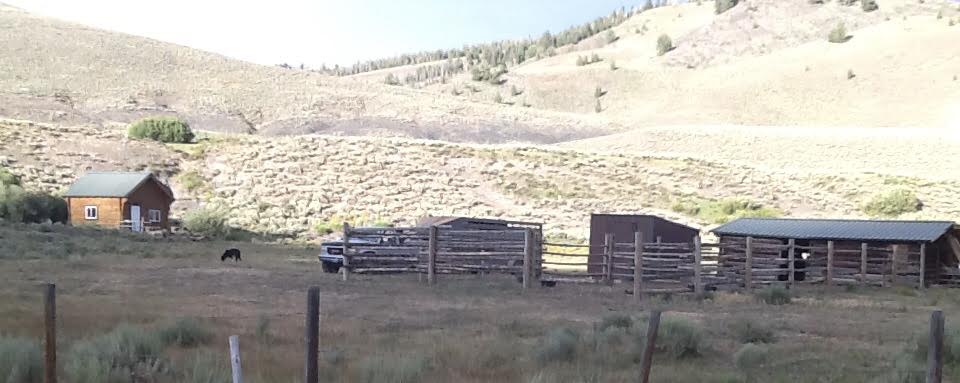
Born amongst horses and cows on a Texas ranch, Jack Wayne comes from a long line of cattle ranchers. Courtesy of Jack Wayne
Even his children grew up seeing people do things around the ranch. He also recalled how different his life was compared to the children of today, with the technology available.
"I had way more freedoms than kids have today," recalling how he'd go fishing by himself at the age of 6. "You did something outside...because we didn't have the technology and stuff that the kids have available to them today."
Jack Wayne, or as most people call him Texas Jack, has spent his life herding, roping, branding and buying and selling cattle all over the United States and Canada. When asked what it's like to be a cowboy, he responded, "It's a thing I guess people dream about doing."
When heading for the mountains, Jack Wayne sets up a remote camp.
"You're living up there," he said, adding that cellphones don't work up there and he cannot contact anybody. "So you are truly out there by yourself when you're out there," he explained. It would bother his wife, who he's been married to now for 52 years. "If something happens to you, you're out of luck...you make it out on your own or you don't get out."
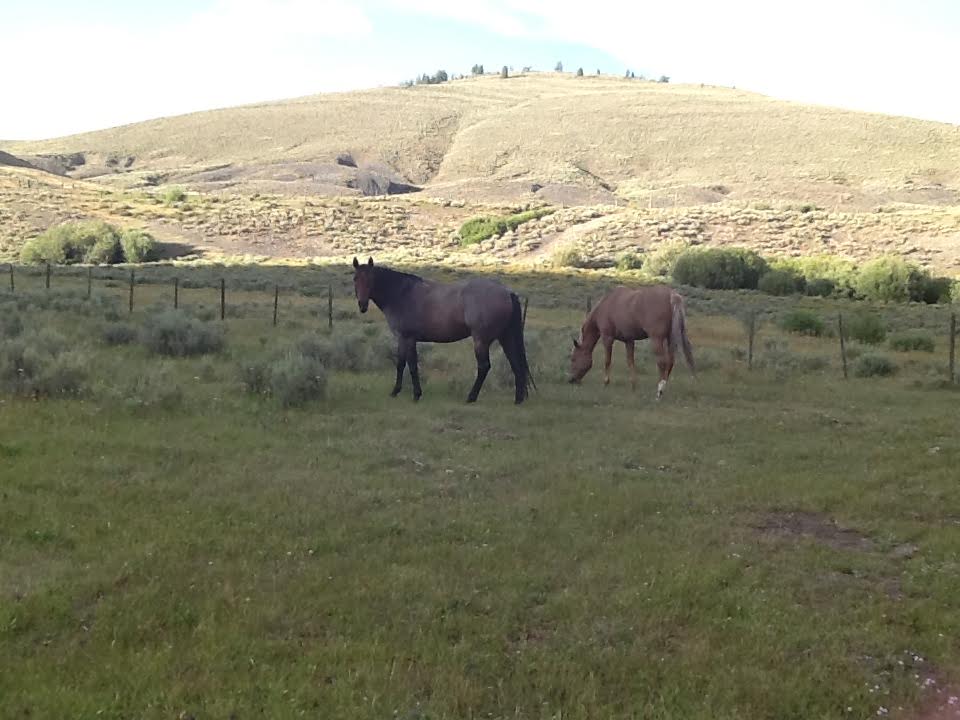
A solid ranch horse is a necessity for a cattle ranch. Courtesy of Jack Wayne
In the early years, there were no roads any vehicles could tackle, no electricity, no GPS and the water was in the stream, where you also cleaned up. Food was mainly campfire cooking.
But before GPS, Jack Wayne would put a push pin on a map that was taped to the wall whenever he left to move cattle. That way, if he went missing, someone would know the general area to start a search. But, being a cowboy is risky as it might be days before anyone even discovered someone was missing.
Jack Wayne, when asked if there were times he was lost and fearful of not getting back, responded, "Oh, I'm used to it. I've been outside all my life... when you're in the mountains, you know, there's this, you know, it's hard to get lost in. The drainage all runs downhill..."
"Now I've been out where I did not know exactly where I was, but that's not lost. I just didn't know where I was at the moment," Jack Wayne recalled.
Describing being up on the mountain as "total peace," this cowboy's strong connection to the mountains, nature and the cowboy life is evident.
For Jack Wayne, a typical herd to be moved could be from 500 to 1,000 cattle. All moved by one cowboy riding a horse or mule and his border collie.
On a typical day, Jack Wayne says he gets up early, and with his dog doing most of the work, he also uses another trick: Salt lick. The cows are attracted to the salt, and he drops the lick when he sees them move.
"When you have to move them, normally when you're by yourself...you got a dog...and they're like your partner. You send them around back, or around front or something, and most of the cows are scared of the dogs, so they herd and you're on the horse and pushing..." he explained.
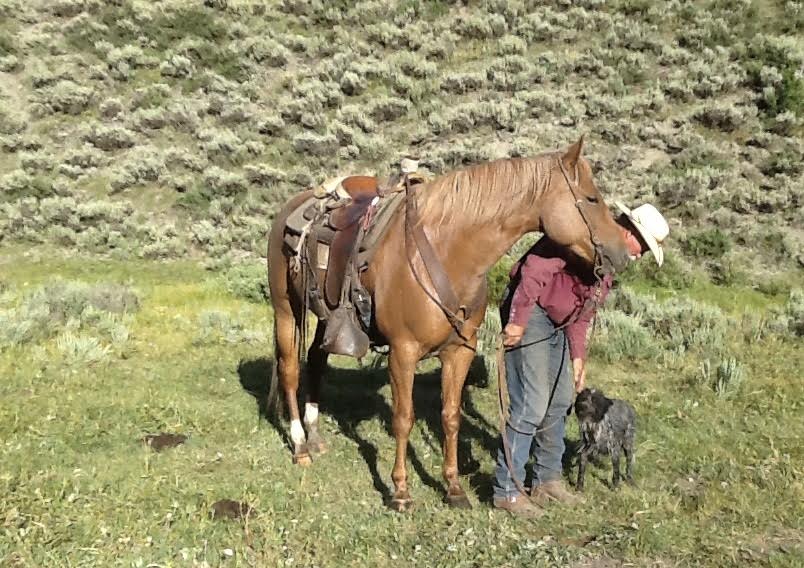
A cattle ranching dream team: Jack Wayne, his dog and a horse. Courtesy of Jack Wayne
"You can get them on a pathway... and once they start, they'll stay together and you push them and follow them," he said.
He said the dog is "the main thing, and then the horse, and then the guy. That's just how you do it. Cattle herd, they know when it's time to go. They're used to being pushed from one area to another."
As for whether he agrees that a dog is a man's best friend, he said, "I would, he listens really good too....when you're with him like that, you have a different bond--he's not a pet," he said. "They are truly with you, it's you and them."
Ranching is in Jack Wayne's blood, and after finishing college with a finance and economics degree, he headed home to the ranch. But he realized he needed a job when the Texas ranch folded.
Jack Wayne took a job as an educator, as he said, "I love kids," and also coached baseball, and would eventually be named school principal. His monthly salary and benefits, compared to the salary of a cowhand of about $500/month, plus room, board and expenses paid) seemed like a fortune.
"Well, I thought, I might just get rich working in education," he said.
As a young man, he continued to run cattle, to ride and rope and wrangle...always keeping his ranching roots alive. When the time was right, he put out some feelers. Texas ranching is all flat land and scorching hot summers. Most of the cattle are penned so cow hands don’t get to do much herding or roping or cutting. Jack Wayne wanted to drive cattle on an open range where there were no fences, no roads--nothing but the range to keep him company. Throw in cool summer temps and Wyoming is about as good as it gets.
With summers off as an educator, Jack Wayne, who knew a lot of cowboys got an invite to head to Wyoming for the spring cattle drive. This is when the herds are driven to the upper elevations to spend the summer months fattening up. It was intended as a purely social visit, but Jack Wayne ended up with an unexpected paycheck and an offer to return each summer, every year, to this very day. Good cattlemen are hard to find, and Jack Wayne was one of them.
“They didn’t know I would have paid them to come back,” he chuckles.
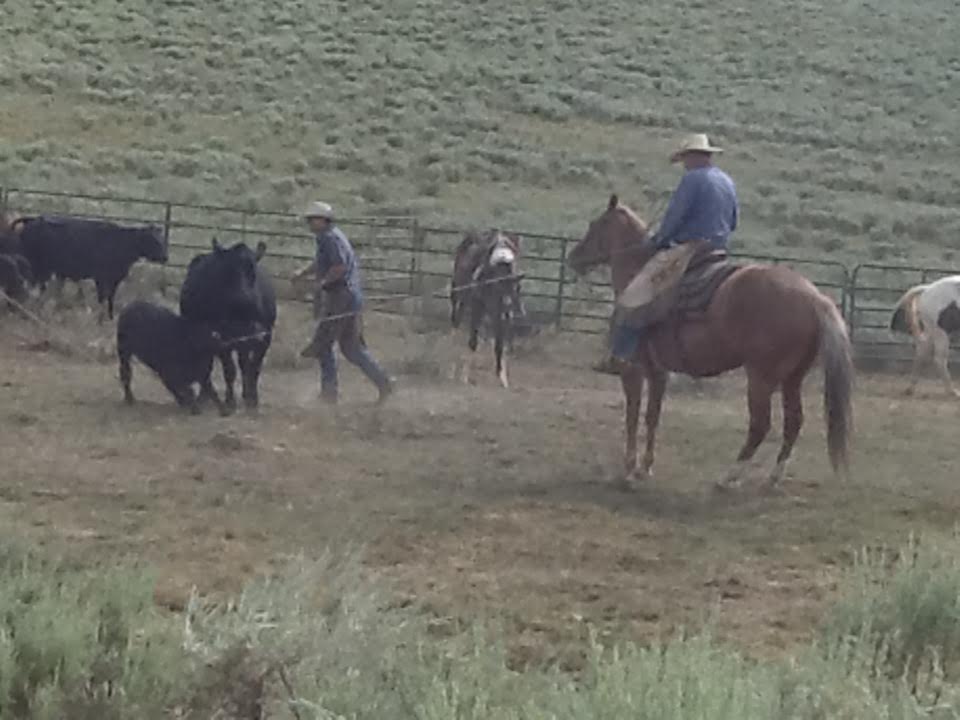
Roping cattle is a skill only achieved with years of practice. Courtesy of Jack Wayne
One of the strangest things about cowboy life is you make little money and while your expenses are covered, the bank won't give you a loan because you have no substantial salary. Most everything you have doesn’t belong to you. You drive a truck that isn’t yours. You carry a ranch credit card with your name on it, yet you have no credit. You live on a piece of land but you own no land of your own. When your body gives out, your ranch life is done. Some of that’s changing, but a lot of it is the same today as it was years and years ago.
Jack Wayne, when asked who was the greatest influence in his life, replied, "my Daddy." He explained they were together forever, and even when he went to college, they spoke often.
His father would later come to the school where Jack Wayne taught, and everyone called him "Dado." When he passed away, members of the baseball team Wayne coached served as his pall bearers.
Jack Wayne was fortunate to have a steady job and a future. But something was missing, and in his heart, he was the cowboy who was longing for the ranch life once again.
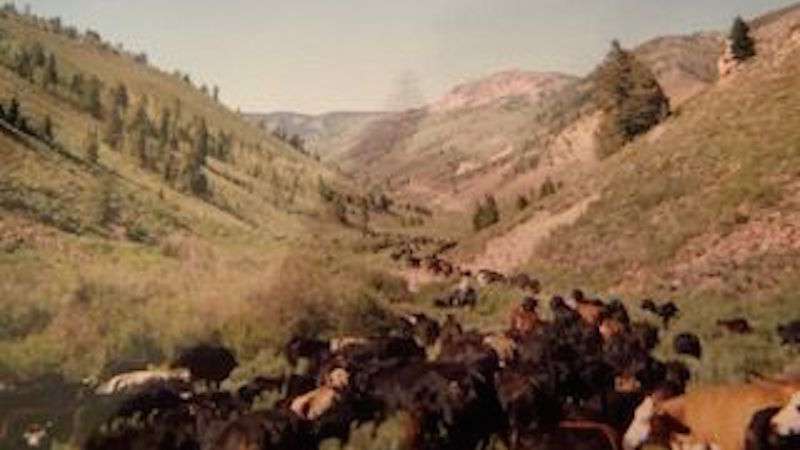
Jack Wayne moves herds of 500 to 1,000 cattle. Courtesy of Jack Wayne
“I always knew I would return to it, one day,” he remembers. Jack Wayne said he knew how much he would need to retire and that was the plan. "I knew what I was going to do. I knew I was going north. I knew I was going to where I am now."
While he currently lives in Athens, Texas, for over 20 years he's spent summers in LaBarge, Wyoming, where he tends to the cattle at the Fox Ranch-Spring Lake. He also has worked in Montana, Canada and New Mexico. Jack Wayne worked as a cowhand on the New Mexico cattle ranch where "Lonesome Dove" was filmed — and he says what was pictured is pretty much the way it was for him most of his cowboy years.
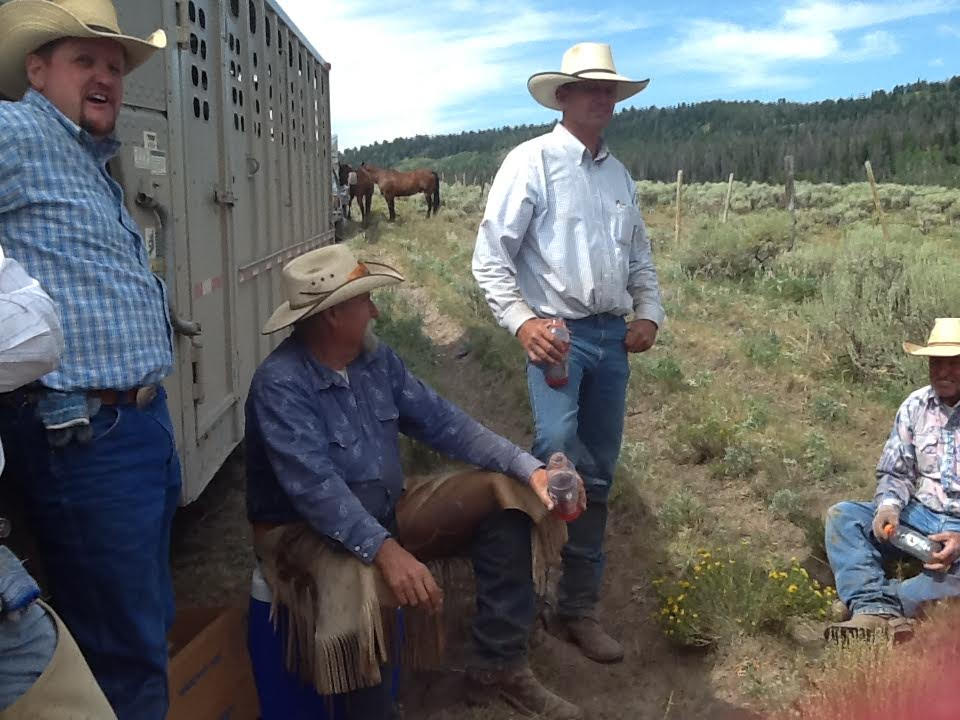
With the heart of a cowboy, the ranching life and his family roots were always calling Jack Wayne back home. Courtesy of Jack Wayne
As for his daily sightings on the ranch--there were grizzly bears who were known to fight to the death if threatened, but Jack Wayne always has a gun just in case. Sometimes, he may go a week or more without seeing another human being. But he does not get lonesome, nor does he consider a cowboy's life a lonely one.
"Live your life today," Jack Wayne explained is his life's motto. And that's exactly what he's doing, because being a cowboy is who he is, and cattle ranching is in his blood. Texas Jack is off this June to Wyoming again, to continue to do what he loves.
